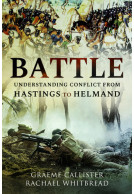Ending the Siege of Leningrad (Hardback)
German and Spanish Artillery at the Battle of Krasny Bor
Imprint: Pen & Sword Military
Pages: 216
Illustrations: 170 black and white illustrations
ISBN: 9781526741028
Published: 6th July 2020
(click here for international delivery rates)
Order within the next 3 hours, 24 minutes to get your order processed the next working day!
Need a currency converter? Check XE.com for live rates
| Other formats available - Buy the Hardback and get the eBook for £1.99! | Price |
|---|---|
| Ending the Siege of Leningrad ePub (29.6 MB) Add to Basket | £6.99 |
The Battle of Krasny Bor in 1943 was part of the Soviet Red Army's efforts to lift the blockade of Leningrad, one of the longest and most destructive in history.
Previous works on the Battle of Krasny Bor have focused primarily on the infantry involved, especially when using veteran testimonies, and the use of artillery has been conspicuously absent.
This book aims to put the reader right in the heart of the battle, describing the action from an artilleryman's point of view, seeing it fundamentally as a duel between the Soviet and German-Spanish soldiers.
I am a former Marine and all Marines are, by definition, riflemen. Since my military specialty was not in any of the support services, I know little about some of the them, such as artillery. I know it generally sits behind where I might be and sends things that go “boom” against something I would want…boomed.
John D. Burtt
So, it was very refreshing to have the chance to review a book all about artillery, especially when it describes a battle from the artillery’s point of view. Carlos Caballero Jurando has written extensively about Spain’s la División Azul (The Blue Division) as well as the Krasny Bor battle. His Ending the Siege of Leningrad: German and Spanish Artillery at the Battle of Krazny Bor (Pen & Sword, 2020) has focused in on the artillery. The four-day battle took place near Leningrad in February 1943 as part of the Russian operation Polar Star. La División Azul took such heavy losses they were withdrawn soon after.
Jurando starts his story where it should: with a thorough discussion of the artillery units of the Axis prior to the battle, their armament and organization. He then sets the stage for Krasny Bor by describing the initial battles that drove a wedge between the German lines and the Lake Ladoga shoreline proving a thin lifeline to the besieged city.
The Polar Star offensive in February was intended to widen that gap, encircling and destroying the German 18th Army in what was then the Mga bulge. Despite an initial good advance aided by Soviet artillery that outnumbered the Axis batteries 3-1, and heavy losses to the Spaniards, the overall goal of the offensive was not achieved, mostly due to the excellent artillery support the Spaniards on their side of the bulge received.
Jurando in his narrative points out that many of the myths about the battle are simply not true. The División Azul was not pushed aside in non-combative position and the Germans did not leave them unsupported. Their resistance – and artillery – were critical to stopping the Russian surge and they had help from multiple German batteries.
The book is also filled with excellent photographs and drawings and has some detailed appendices to provide the reader with more information on the armament of the artillery batteries in the battle. He also provides an appendix citing the División Azul artillerymen who distinguished themselves in the battle. – nice to see individuals so named and honored.
If the book has a weakness it’s the maps. Most are copies of sketch maps drawn at the time and so tend to be small and not very helpful. While he doesn’t append a specific bibliography, the chapter end notes provide some sources – mostly in Spanish – for follow on study.
In all, an impressive work by an expert on both the División and the battle to provide a unique view of East Front combat.
Again a fresh vision of historical facts already recognised.
Miniaturas JM
Read the full Spanish review here
Of the many books published on the sieges of Leningrad and Stalingrad very little coverage has been provided of the artillery, historians concentrating on the infantry and snipers. The author has not only corrected this commission, but covered the Spanish artillery deployed to the siege. – Very Highly Recommended
Firetrench
Read the full review here
This book is written from the aspect of the Spanish Artillery at this Battle and it is a superb text doing exactly what is described on the front cover.
Dr Stuart C Blank
One cannot fail to appreciate the effort of Carlos Caballero Jurado to bring to light the role of the Spanish gunners and their courage, often combined with the sacrifice of life to support the infantry and save and defend their guns.
On The Old Barbed Wire
Read the full Italian review here
The author does an excellent job in dispelling such historical half-truths and does so by widening the frame of reference to include the Division’s artillery arm.
Phil Curme
Read the full review here
About Carlos Caballero Jurado
Carlos Caballero Jurado is an experienced Second World War historian, who specialises in the researching the roles played by Spanish soldiers during this great conflict.
Siege of Leningrad lifted by the Soviets
27th January 1944
Siege of Leningrad lifted by the Soviets after 880 days and more than 2 million Russians killed















